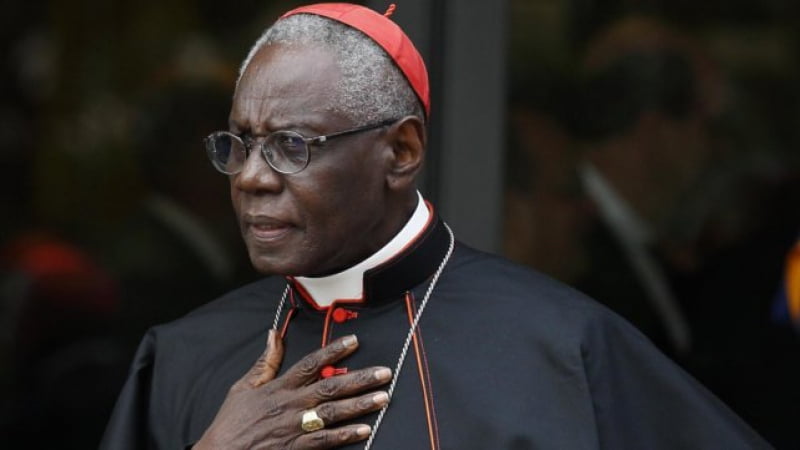History was made this day, Friday, April 19, 2024, when Cardinal Gregory recalls a time when Black Catholics could not study in U.S.A seminaries. The Correspondent of RECOWACERAO NEWS AGENCY, RECONA attached strictly to the city of the Vatican reported that as the Catholic Church’s first African American cardinal was honored at a U.S. seminary in Rome, he recalled the legacy of faith and perseverance of Black Catholics in America, including at a time when U.S. seminaries did not accept them.
Cardinal Wilton Gregory, the archbishop of Washington, received this year’s Rector’s Award at an April 11 banquet at the Pontifical North American College, where seminarians from across 99 dioceses in the U.S. live while studying for the priesthood in Rome.
In an interview with CNA before the award ceremony, Gregory pointed out that in the 19th century, African Americans who had a vocation to the priesthood were sent to study in Rome and then to serve as missionaries in Africa because at the time they were not allowed to enter U.S. seminaries.
“Being in Rome reminds me also that Rome is the place that provided a seminary education and formation for Augustus Tolton, the first African American priest to serve openly in the United States,” Gregory said.
Tolton “came to Rome because Rome … was willing to take him on as a seminarian when no other seminary in the United States would accept that.”
Venerable Augustus Tolton, a former slave turned Catholic priest, is now on the path to sainthood in the Catholic Church. He studied in Rome near the Spanish Steps at the Pontifical Urban University, run by the Vatican’s Congregation for the Propagation of the Faith, from 1880 to 1886, when he was ordained in the Archbasilica of St. John Lateran.
Tolton offered his first Mass in St. Peter’s Basilica on April 25, 1886. One hundred and thirty-four years later, Pope Francis made Gregory the first African American cardinal in a ceremony in the same basilica in 2020.
“I know that the honor that was given to me by Pope Francis rested solidly on the faith of African American Catholics,” Gregory told our Correspondent. “Even in times when we weren’t respected, or understood, or honored, we remained faithful.”
“And the fact that I can enjoy the office, knowing that it rests on the quality of goodness, faith, and charity of the African American community, humbles me deeply,” the cardinal said with tears in his eyes.
Gregory has led the Archdiocese of Washington since 2019. He said that navigating a U.S.A. presidential election year as the archbishop requires prudence.
“We are living in a very divisive moment, both in our political life in the United States, but sometimes also … in our Church,” he said.
“In the United States, we are struggling with trying to be one people — one people with a common purpose, a common future. And sometimes the rhetoric gets to be so hostile and so vitriolic that it causes us to step back and say, ‘Is this the nation that is the land of the free and the home of the brave?’”

The cardinal, who will be in Rome for the month leading up to the U.S.A. election as a delegate in the Synod on Synodality, said that his task is “difficult, but not impossible.”
“As the archbishop of Washington, I have to focus on the fact that despite all of the differences that are at play, I have wonderful people in my archdiocese. And people have great generosity and devotion to the country and the Church.”
Gregory recently made headlines for calling President Joe Biden a “cafeteria Catholic” in an Easter interview on “Face the Nation,” explaining that Biden “picks and chooses dimensions of the faith to highlight while ignoring or even contradicting other parts.”
While he did not receive a response from the White House to the comments, the cardinal said that “the overwhelming response was positive” from the Catholics in his archdiocese.
“I respect the president. I believe that he is a sincere man of faith, I do believe that. I would just ask that he would somehow find a way to better allow his religious convictions to engage in the public forum,” Gregory said.
The cardinal pointed to the Vatican’s recent declaration on human dignity, Dignitas Infinita, as “a wonderful summation of the Church’s moral teaching.”
Gregory said that he hopes the Eucharistic revival in the U.S.A. will lead American Catholics to “draw closer together as a family of faith around the altar that Christ sets for us.”
“The emphasis on the Real Presence also should generate the next question: If Christ is present and I receive him in the Eucharist, what does that demand of me?” he said.
“His Eucharistic presence is a gift of unquestionable importance. But it’s also a challenge that those of us who dine with him must live like him and have the same values that he expressed in the Gospels as his legacy of faith and love.”
- RECOWA-CERAO WELCOMES TWO NEW BISHOPS - July 26, 2024
- TODAY WE ARE TAKING UP THE THIRD SEGMENT IN OUR SERIES - July 26, 2024
- CHARACTERISTICS OF GREAT LEADERS SHARED BY A USA AUTHOR - July 25, 2024







